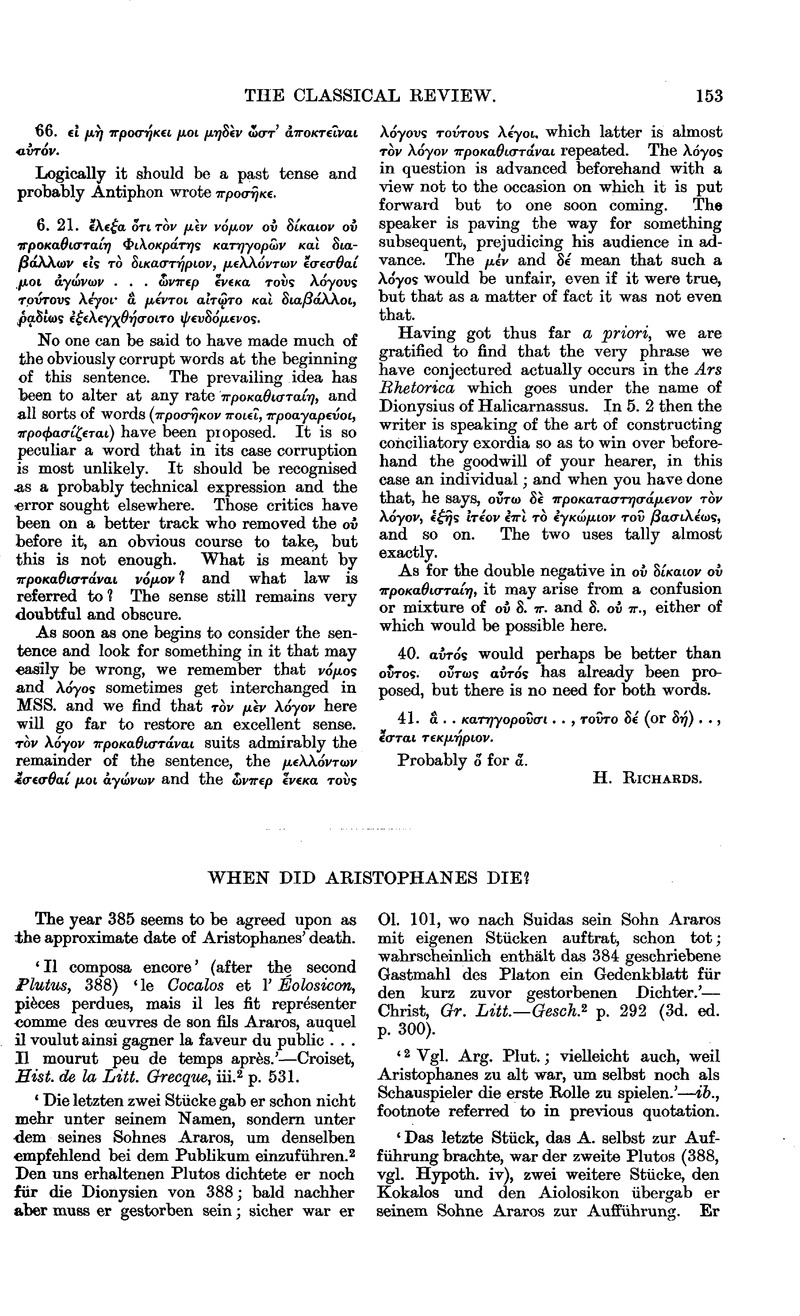No CrossRef data available.
Article contents
When did Aristophanes Die?
Published online by Cambridge University Press: 27 October 2009
Abstract

- Type
- Original Contributions
- Information
- Copyright
- Copyright © The Classical Association 1906
References
page 154 note 1 Platonius de div. com. § 8 ![]() does not contradict this, for ⋯δ⋯δαξεν is here, as the context clearly shows, used loosely and inaccurately in the sense of composed.
does not contradict this, for ⋯δ⋯δαξεν is here, as the context clearly shows, used loosely and inaccurately in the sense of composed.
page 154 note 2 Christ's note, quoted above, is not to the point; Aristophanes, he says, died probably before 384, certainly before 376/5, and had presented the Plutus in his own name in 388; but the lapse of these few years could hardly have caused him on the score of advanced age, as Christ thinks, to give up the active work of presenting a play, for he had always been in the habit of giving many of his plays to others for production, notably to Callisthenes and to Philonides, and even if he had desired to present it himself he would not have been obliged to take the part of the first actor.
page 154 note 3 So also Kaibel in Pauly- Wissowa Real-Encyc. ii p. 381 s.v. Araros 2, ‘Selbständig als Dichter ist er nach Suidas zuerst O1. 101 aufgetreten, also mindestens 13 Jahre nach dem Plutos.’
page 154 note 4 It is immaterial here whether the Cocalus preceded the Aeolosicon or not; Hyp. IV. Plut. names the Cocalus first, while Anon. Vita Aristoph. § 12 implies that the Cocalus was Aristophanes' last play.
page 154 note 5 In fact, of the thirty odd passages in which, the play is mentioned, all expressly state or by the immediate context imply that Aristophanes is the author of the play.
page 155 note 1 This is Casaubon's correction for the manuscript reading ![]() .
.
page 155 note 2 He is there spoken of as Ἀρ⋯στυλλος, which is a nickname of Aristocles, the philosopher's real name (cf. Kock, , Frag. Com. Att. i p. 528Google Scholar, Aristophanes fr. 538).
page 155 note 3 From the second Plutus, 388, to this play, 375 at the earliest.


